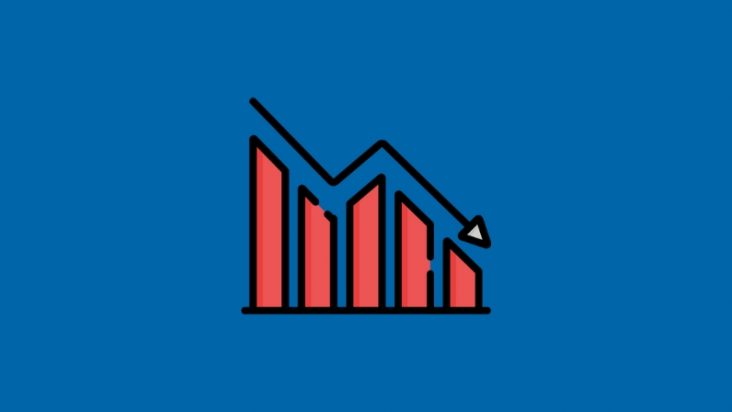

The blockchain industry continues to evolve at a remarkable pace, and 2025 is expected to be a milestone year. With rapid advancements in technology, increasing adoption across industries, and greater regulatory clarity, blockchain is set to revolutionize traditional systems while creating new opportunities. From finance to supply chain management, blockchain solutions will drive efficiency, transparency, and innovation. Below are the key trends anticipated to shape the blockchain industry in 2025.
Mass Adoption of Decentralized Finance (DeFi)
Decentralized Finance (DeFi) has emerged as one of the most significant developments in the blockchain ecosystem, providing financial tools and services without intermediaries. By 2025, mass adoption of DeFi will likely reach new heights as regulatory clarity and user-friendly platforms bring more people into the ecosystem. Traditional financial services such as lending, borrowing, savings, and investments will become more accessible through decentralized systems. This shift will democratize finance, particularly in underserved regions, while improving security and reducing fees. Integrating DeFi with conventional financial institutions will open pathways for hybrid models, further driving adoption.
Expansion of Central Bank Digital Currencies (CBDCs)
Governments around the world are prioritizing the development of Central Bank Digital Currencies (CBDCs) to modernize their monetary systems. By 2025, CBDCs will likely become mainstream, with more nations launching pilot programs or full-scale implementations. These digital currencies offer benefits such as faster transaction times, reduced costs, and enhanced transparency. For developing economies, CBDCs could address financial inclusion challenges by offering reliable, digital financial tools. The coexistence of CBDCs with blockchain-based payment systems could bridge the gap between decentralized innovation and government-backed currencies, creating a more integrated global financial ecosystem.
Sustainable and Energy-Efficient Blockchains
The environmental impact of blockchain, particularly networks relying on energy-intensive Proof-of-Work (PoW) mechanisms, has been a topic of significant concern. In response, the industry is shifting towards energy-efficient alternatives like Proof-of-Stake (PoS) and hybrid consensus models. By 2025, sustainable blockchain solutions will dominate, aligning with global climate goals. Innovations such as carbon-neutral networks and eco-friendly consensus protocols will reduce energy consumption while maintaining performance and security. This trend will appeal to environmentally conscious enterprises and users, fostering greater blockchain adoption in industries that prioritize sustainability.
Integration of Blockchain and Artificial Intelligence (AI)
The synergy between blockchain and artificial intelligence (AI) will play a pivotal role in shaping technological advancements by 2025. Blockchain offers a secure, transparent, and immutable infrastructure that complements AI’s data-driven operations. AI algorithms can optimize blockchain functions, such as smart contract execution and fraud detection, while blockchain ensures data integrity and trust. Together, these technologies will transform sectors like healthcare, logistics, and finance by improving efficiency, automating processes, and securing sensitive information. Businesses leveraging this convergence will gain a competitive edge in a digital-first economy.
Blockchain in Supply Chain Management
Supply chain management is one of the sectors that stands to benefit the most from blockchain adoption. By 2025, blockchain solutions will streamline global supply chains, providing real-time transparency, traceability, and fraud prevention. Companies will use blockchain to track goods at every stage, from production to delivery, ensuring authenticity and reducing inefficiencies. Industries like agriculture, pharmaceuticals, and manufacturing will particularly benefit from blockchain’s ability to mitigate counterfeiting and waste. As businesses prioritize accountability and ethical sourcing, blockchain will serve as a critical tool for achieving these goals.
Tokenization of Real-World Assets
Tokenization is set to revolutionize how real-world assets such as real estate, stocks, and commodities are managed and traded. By 2025, blockchain will enable the fractional ownership of traditionally illiquid assets, making them accessible to a broader range of investors. Smaller investors will be able to participate in markets previously limited to high-net-worth individuals and institutions. Tokenized assets will also provide greater liquidity and faster transactions. This trend will unlock new opportunities for wealth generation, while industries like real estate and commodities trading will undergo a digital transformation.
Growth of Web3 and Metaverse Projects
The rise of Web3 and blockchain-powered metaverse ecosystems will define digital interactions by 2025. Web3 represents the decentralized internet, empowering users to control their data and engage with applications in a trustless environment. At the same time, blockchain-based metaverse platforms will enable secure digital ownership of virtual assets, such as land, avatars, and art. Enterprises and developers will increasingly adopt Web3 infrastructure to build decentralized applications (dApps) that operate seamlessly across platforms. The combination of blockchain and metaverse technologies will create new revenue streams and immersive digital experiences.
Strengthened Regulatory Frameworks
As blockchain adoption accelerates, governments and regulatory bodies are working to develop clear frameworks that ensure security, compliance, and stability. By 2025, more jurisdictions will implement comprehensive regulations, providing much-needed legal clarity for blockchain-based projects and cryptocurrency markets. Clear regulations will address issues such as taxation, anti-money laundering (AML), and consumer protection. Regulatory certainty will attract institutional investors, fostering mainstream adoption of blockchain solutions. While compliance remains a challenge, collaboration between regulators and industry leaders will help strike a balance between innovation and accountability.
Enhanced Security and Privacy Protocols
With increasing cyber threats and privacy concerns, the blockchain industry will prioritize enhanced security measures and privacy protocols by 2025. Technologies such as zero-knowledge proofs (ZKPs) and homomorphic encryption will play a key role in enabling secure, private transactions without compromising transparency. Additionally, advancements in decentralized identity solutions will give users control over their personal data while improving authentication processes. Stronger security frameworks will bolster user confidence in blockchain systems, making them more resilient to cyberattacks and unauthorized access.
Interoperability Between Blockchains
The lack of interoperability between blockchain networks has been a longstanding challenge, limiting their potential. By 2025, significant advancements in cross-chain solutions will enable seamless communication, asset transfers, and data sharing between different blockchain ecosystems. This will facilitate the development of unified, interconnected decentralized systems that improve user experience and scalability. Interoperability will drive collaboration between blockchain platforms, supporting use cases such as decentralized finance (DeFi), gaming, and supply chains. Businesses and developers will benefit from the ability to operate across multiple networks without friction.
The Road Ahead: Blockchain’s Transformative Impact
The blockchain industry is on the cusp of unprecedented innovation and global adoption. Trends such as DeFi mass adoption, sustainable technologies, CBDCs, and asset tokenization will redefine entire industries, creating more transparent and efficient systems. The integration of blockchain with emerging technologies like AI, Web3, and metaverse platforms will unlock new opportunities for businesses and individuals. As we approach 2025, staying informed and adaptable will be essential for leveraging the full potential of blockchain. Those who embrace this transformative technology will be well-positioned to thrive in a rapidly changing digital landscape.








